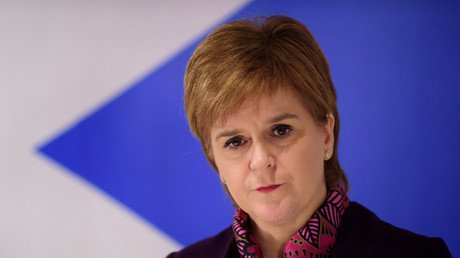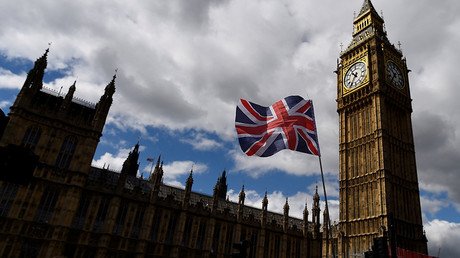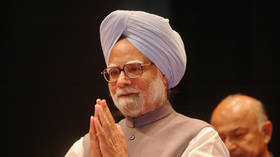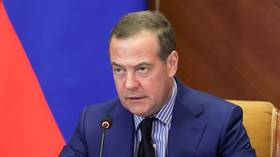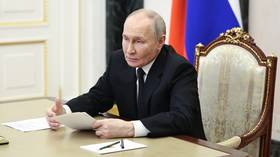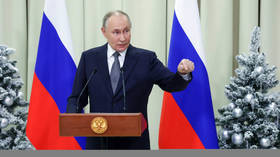Hypocrisy? Experts slam Tories' fake news security unit as govt 'peddles misinformation'

The government has been accused of having double standards after it announced plans to set up a special unit to tackle fake news, despite its own record of “burying bad" stories and "circulating fake dossiers."
Downing Street said on Tuesday that a national security unit combating the spread of misinformation would be set up as part of a wider review of defense capabilities. The unit “will be tasked with combating disinformation by state actors and others,” Prime Minister Theresa May’s spokesperson said.
Concerns have been raised that the National Security Communications Unit, to be based in the Cabinet Office, could stifle freedom of speech and give the government arbitrary power to filter news according to its own agenda.
Goldsmiths, University of London media and communications professor Des Freedman told RT the move is “ironic” given the amount of disinformation the UK government has itself peddled.
“It's entirely fitting, if not a little ironic, that the UK government has set up a specialist unit to tackle fake news. After all, government has long been expert in massaging statistics, burying bad news, publicizing its chosen policy initiatives and even producing and circulating fake dossiers to persuade us to go to war,” he said.
The government has faced numerous accusations of disseminating false information, including Boris Johnson's notorious £350m Brexit battle bus, David Davis' disappearing economic assessments and Theresa May's false homeless figures.
Freedman added that adopting the phrase ‘fake news’ will kill the purpose the unit was set up for in the first place.
“The first thing that any unit on ‘fake news’ should do is to abolish the term. ‘Fake news’ refers to such a wide variety of different practices that it is simply not a useful analytical term.
“It is a way of labelling everything from deliberate falsehoods to information we do not like, to data produced by bots or foreign agents to the everyday content of some of our best-known news organizations.
“The government's decision to commit resources to tackling a phenomenon with which it is so closely implicated is more ideological than practical,” he added.
“If government wanted to restore credibility to official sources of news, it would take action to tackle the power of our unelected media barons and to challenge the digital dominance of outfits like Google and Facebook. It wouldn't put itself in the position of deciding for us what is 'fake' and what is ‘real’.”
Concerns were also raised with RT by social media expert Felix Jackson, who said it is “difficult to define objectively what fake news is.”
“But I think there are two parts of it,” Jackson said. “The first part is it is not reliable. It’s not correct, maybe factually inaccurate.
“The second part is you don’t know who its coming from, so it might look like its coming from one person but it’s actually coming from someone completely different.”
He added it is “really difficult to be objective and research things online. And also combined with the echo effect of social media, you follow people who have similar opinions to you, so you see opinions being reflected back to you.
“So it’s very difficult to get objective and different opinions on the stuff they see,” Jackson said, before adding about the new unit: “They [government] have no idea of how it’s going to work, I don’t think they’ve sketched out any firm plans.”
Britain’s announcement follows Brazil’s decision to set up a council that would monitor and potentially block whatever is deemed fake news on social media ahead of the presidential elections in 2018.
France also announced new measures that will mandate the deleting of fake news and censoring of websites distributing it, as well as the closure of accounts found responsible for its spread – all following a judicial order.
In turn, Tim Dawson, National Union of Journalists president, called into question the efficacy of propping up an anti-fake news unit. He told RT: "The best antidote to fake news is quality journalism – and that requires resources, plural ownership and determined journalists. For more than 80 years, our members have committed themselves to a code of conduct setting out how journalistic ethics should be observed.
“There is much that the government could do to support quality journalism that would not require the establishment of a new wing of the state's national security apparatus.”
If you like this story, share it with a friend!
